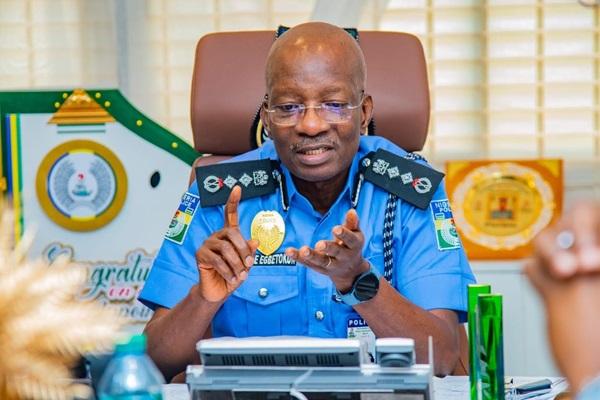As the retirement date of Inspector General of Police (IGP) Kayode Egbetokun approaches, the race to succeed him has intensified within the Nigeria Police Force. Egbetokun, who was appointed on June 19, last year, is scheduled to retire on September 4, when he will turn 60.
However, uncertainty looms over whether he will retire as planned or if his tenure will be extended by recent amendments to the Police Act.
The amendment, an Executive Bill passed by both chambers of the National Assembly on July 31, grants the President the authority to extend the tenure of an IGP beyond 35 years of service or 60 years of age, allowing the sitting IGP Egbetokun to complete a full four-year term. However, the bill is yet to be signed into law by the President.
This delay has created tension among senior police officers, including Commissioners of Police (CPs), Assistant Inspectors-General (AIGs), and Deputy Inspectors-General (DIGs), many of whom are now lobbying intensely for the IGP’s Egbetokun position.
READ ALSO: Nigeria Police Housing Scheme: IGP Egbetokun’s Vision
Sources within the police force indicate that if the President does not sign the amendment before September 4, Egbetokun will be required to retire as scheduled. Others argue that there is still time for the President to sign the amendment, which could result in Egbetokun benefiting from a tenure extension. However, there are concerns that if the amendment is signed, it should not be applied retroactively, meaning Egbetokun should not benefit from it.
Currently, there are eight DIGs, 46 AIGs, and 125 CPs in the police force. Of the eight DIGs, four are set to retire between September and December 2024. The retirement dates for the DIGs include Bala Ciroma (March 3, 2025), Emeka Frank Mba (May 18, 2027), Sylvester Abiodun Alabi (December 31, 2024), Daniel Sokari-Pedro (December 18, 2024), Ede Ayuba Ekpeji (October 21, 2024), Bello Makwashi Maradun (December 25, 2024), Dasuki Danbappa Galadanchi (March 3, 2025), and Sahabo Abubakar Yahaya (September 15, 2025).
The amendment creating tension within the force includes the addition of Section 18(8A) to the Nigeria Police Act, 2020. This section allows an IGP to remain in office until the end of the term stipulated in their letter of appointment, irrespective of the 35-year service limit or the age of 60 years.
READ ALSO: HDAN Advocates Decent Home for Every Police Officer, Commends IGP Egbetokun on New Initiative
Despite the uncertainty, some senior officers have already begun lobbying for the top position, anticipating a potential overhaul of the NPF structure. Sources indicate that this has created a sense of suspense within the force, with many unsure whether the four DIGs set to retire before December 25 will benefit from the new law.
There are concerns among some officers that an extension of Egbetokun’s tenure could hinder their career progression and lead to stagnation within the force. They argue that a last-minute extension could distort the system and fuel lobbying and desperation among officers seeking higher positions.
However, another source suggested that the President is carefully considering his options in the best interest of the country and the police force. The President, as the Commander-In-Chief of the Armed Forces, has the prerogative to either extend Egbetokun’s tenure or allow him to retire.
This is not the first time the Nigeria Police Force has faced controversy over tenure extensions. Former IGPs Suleman Adamu and Usman Baba both received tenure extensions under ex-President Muhammadu Buhari, with Baba staying in office until President Tinubu appointed Egbetokun as his successor three months later.
As the situation unfolds, all eyes are on the President’s decision, which could set a precedent for future tenure extensions within the Nigeria Police Force.



